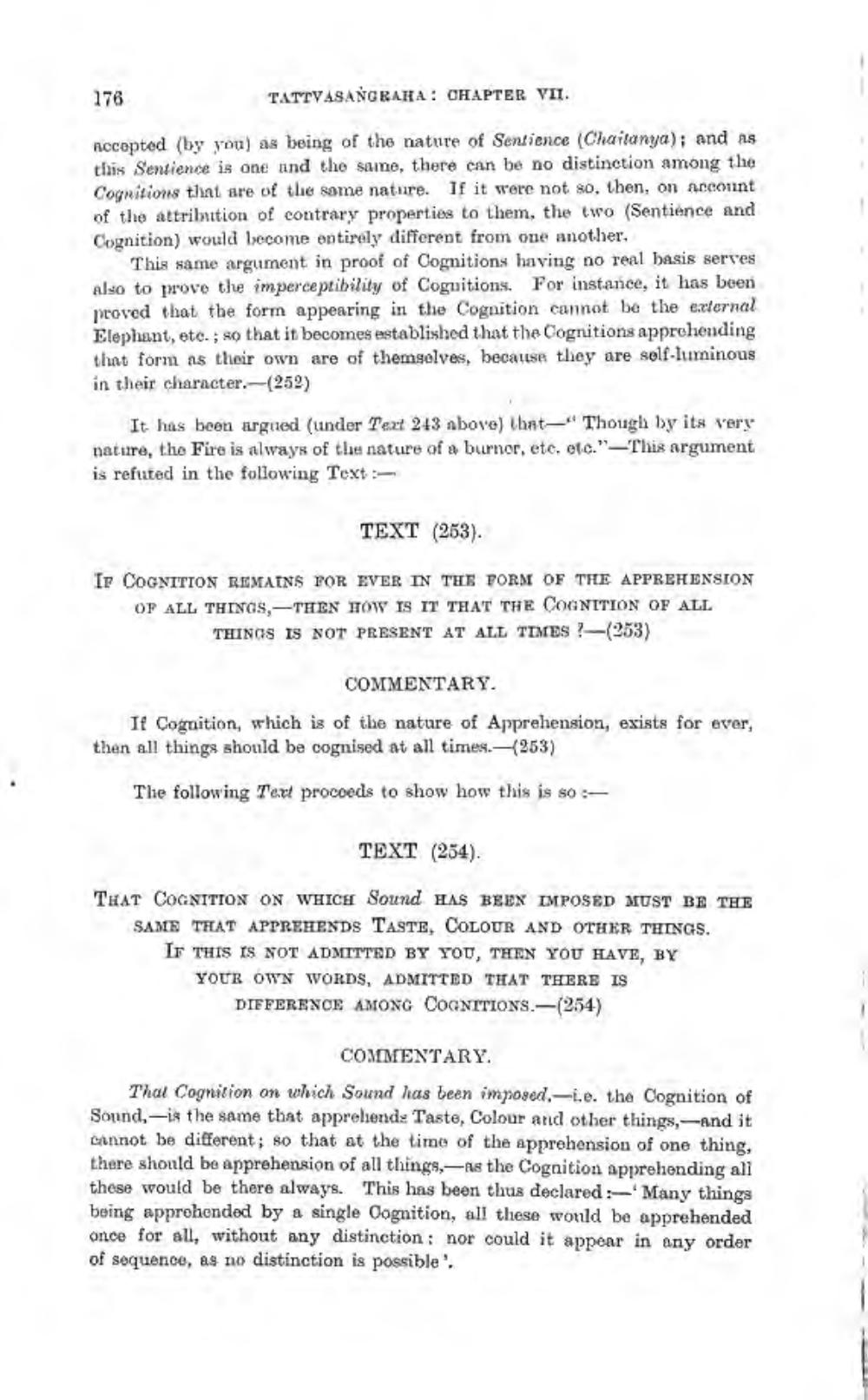________________
176
TATTVASANGRAHA: OHAPTER VII.
Recepted by you) as being of the nature of Sentience (Chaitanya); and as this Sentience is one and the same, there can be no distinction among the Cognitions that are of the same nature. If it were not so, then, on account of the attribution of contrary properties to them, the two (Sentience and Cognition) would become entirely different from one another,
This same argument in proof of Cognitions having no real basis serves Also to prove the imperceptibility of Cognitions. For instance, it has been proved that the form appearing in the Cognition cannot be the external Elephant, etc.; so that it becomes established that the Cognitions apprehending that form as their own are of themselves, because they are self-luminous in their character.-(252)
It has been argued (under Text 243 above) that Though Isy its very nature, the Fire is always of the nature of a burnor, etc, etc." -This argument is refuted in the following Text :
TEXT (253)
IT COGNITION REMAINS FOR EVER IN THE FORM OF THE APPREHENSION OF ALL THINGS,THEN HOW IS IT THAT THE COGNITION OF ALL
THINGS IS NOT PRESENT AT ALL TIMES!-(253)
COMMENTARY.
If Cognition, which is of the nature of Apprehension, exists for ever, then all things should be cognised at all times.—(253)
The following Text proceeds to show how this is so
TEXT (254).
That COGNITION ON WHICH Sound HAS BEEN IMPOSED MUST BE THE SAME THAT APPREHENDS TASTE, COLOUR AND OTHER THINGS. IT THIS IS NOT ADMITTED BY YOU, THEN YOU HAVE, BY YOUR OWN WORDS, ADMITTED THAT THERE IS
DIFFERENCE AMONG COGNITIONS.- (254)
COMMENTARY
Thal Cognition on which Sound has been imposed.-L.e. the Cognition of Sound, -is the same that apprehende Taste, Colour and other things, and it cannot be different; so that at the time of the apprehension of one thing, there should be apprehension of all things, -as the Cognition apprehending all these would be there always. This has been thus declared Many things being apprehended by a single Oognition, all these would be apprehended once for all, without any distinction : nor could it appear in any order of sequence, as no distinction is possible.




